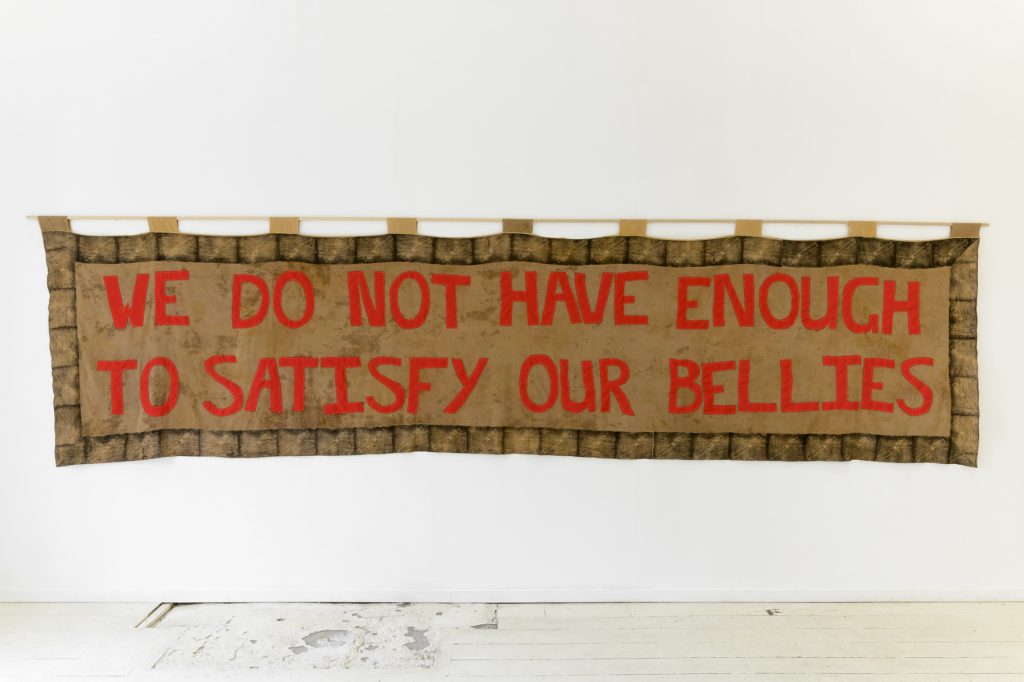
Quishile Charan, We Do Not Have Enough to Satisfy Our Bellies, 2019, cotton, textile ink, natural dye (aal bark and kumkum seeds), 493 x 117 cm
Quishile Charan, We Do Not Have Enough to Satisfy Our Bellies, 2019, cotton, textile ink, natural dye (aal bark and kumkum seeds), 493 x 117 cm

“I once asked my Fua about the ghosts of indenture, did they still exist? She looked to the setting sun and replied: ‘We must only talk of these things at the house and not at nightfall. But beta, they are everywhere.’”
—Quishile Charan
How to honor the repressed histories of such ghosts and how to heal the trauma endured by Indo-Fijian communities? Working under the punchy name of The Bad Fiji Gyals, Quishile Charan and Esha Pillay call attention to the legacy of Girmitiya women, indentured laborers from the Indian subcontinent recruited by British colonial authorities to work on Fiji’s sugarcane plantations. Their collaborative work originates in archival testimonies and oral accounts sourced within their own community to initiate processes of resistance and remembrance. Through discursive studies, like the essay “Undoing History’s Spell on Bad Women: Counter-colonial narratives of the female Girmit role in the 1920 labour strike,” (2020) Charan and Pillay question official histories that cast Girmitiya women as immoral sources of corruption and expose their systematic erasure from historical research. Adding to the archive and network created and nurtured by The Bad Fiji Gyals, the podcast series Fiji Baat: Oral Histories & Interviews (2020–ongoing) presents research and oral histories collected by the duo that are enriched by encounters with activists and theorists like Rohini Balram, Romitesh Kant, Roshika Deo, and Zakiyyah Ali.
A series of textile banners complementing this work materialize the physical and corporeal memory of Charan’s family’s legacy of craft and the wider ancestral craft practices found across the Indo-Fijian community. Charan learned this cultural knowledge system at a very young age from her aaji (paternal grandmother). In a series of appliqué, naturally dyed, and embroidered textiles, the agency of domestic manual work coalesces into a form of protest through the labor of healing and ritual pyaar (love). The banners memorialize the Girmitiya’s 1920 labor strike in slogans chanted by Charan and Pillay’s ancestors like “We do not have enough to satisfy our bellies” and in reproductions of historical documents like the letter from strike leader Sushila, who demanded in the name of the Girmitiya community a minimum living wage for plantation workers.
Quishile Charan, We Do Not Have Enough to Satisfy Our Bellies, 2019, cotton, textile ink, natural dye (aal bark and kumkum seeds), 493 x 117 cm